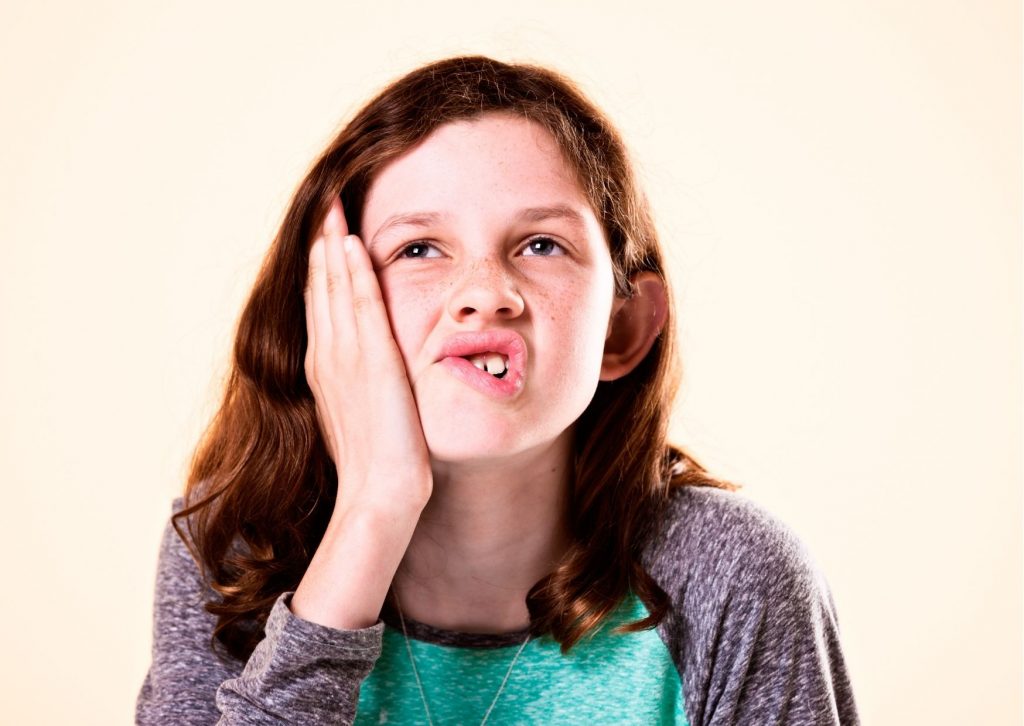The temporomandibular joints (TMJ) are defined by Johns Hopkins Medicine as “the 2 joints that connect your lower jaw to your skull. More specifically, they are the joints that slide and rotate in front of each ear, and consist of the mandible (the lower jaw) and the temporal bone (the side and base of the skull).”
As you can tell, these are complex joints that can cause complex issues, which we call Temporomandibular disorders (TMD). These disorders of the jaw and muscle can cause intense facial pain. And usually, this doesn’t just happen overnight. These issues can appear as a result of activities and changes over time, beginning as early as our teens.
Teens and TMJ

Any stressor on the jaw can contribute to TMD. This can be processed foods, high-impact sports like football or cheerleading, and chewing on pen caps or gum. These activities push our jaw backward, which puts stress on the joint, causing tension until our late teens or 20s when the jaw reaches adult size.
Adults and TMJ
Between demanding jobs and daily obligations, adult life can be stressful. For the people that didn’t begin to develop TMD as a teen, the start of TMD can happen from teeth grinding and clenching, causing the jaw to misalign. Car accidents, falls and facial trauma can all be causes of TMD development as well.
Environmental Evolution
Another interesting consideration is that TMD is likely a cause of the industrial revolution. Our teeth and jaws have shifted and changed as a result of how our diets and accents have evolved over time.
Whether you started developing TMD in your early life or as an adult, there are solutions. Contact Sleep Rehab today to request an appointment to help relieve your facial pain!

